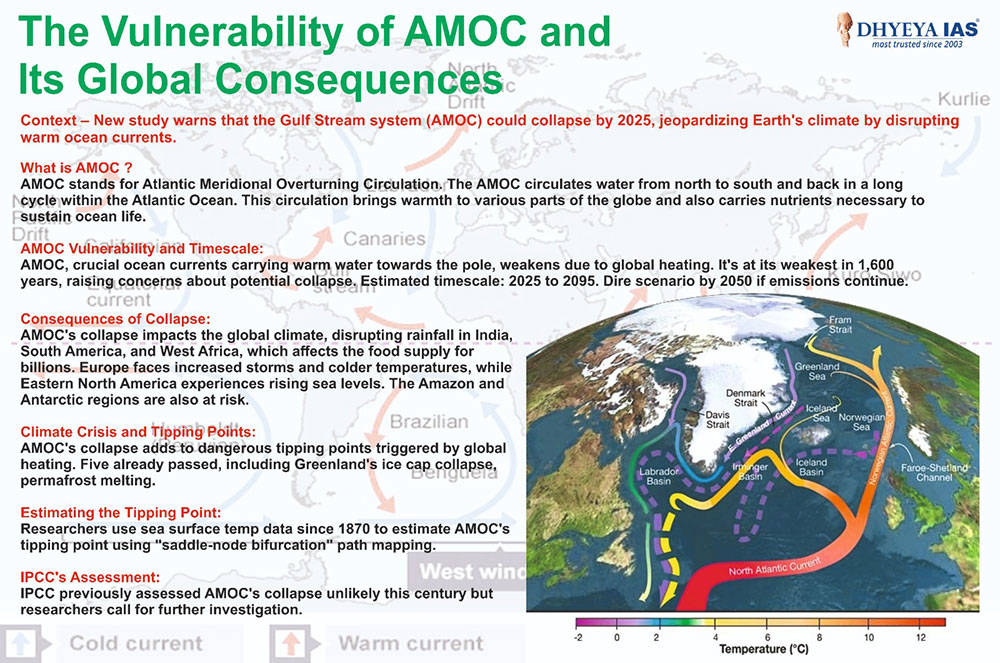
Context –
- New study warns that the Gulf Stream system (AMOC) could collapse by 2025, jeopardizing Earth's climate by disrupting warm ocean currents.
What is AMOC ?
-
AMOC stands for Atlantic Meridional Overturning Circulation. The AMOC circulates water from north to south and back in a long cycle within the Atlantic Ocean. This circulation brings warmth to various parts of the globe and also carries nutrients necessary to sustain ocean life.
AMOC Vulnerability and Timescale:
- AMOC, crucial ocean currents carrying warm water towards the pole, weakens due to global heating. It's at its weakest in 1,600 years, raising concerns about potential collapse. Estimated timescale: 2025 to 2095. Dire scenario by 2050 if emissions continue.
Consequences of Collapse:
- AMOC's collapse impacts the global climate, disrupting rainfall in India, South America, and West Africa, which affects the food supply for billions. Europe faces increased storms and colder temperatures, while Eastern North America experiences rising sea levels. The Amazon and Antarctic regions are also at risk.
Climate Crisis and Tipping Points:
- AMOC's collapse adds to dangerous tipping points triggered by global heating. Five already passed, including Greenland's ice cap collapse, permafrost melting.
Estimating the Tipping Point:
- Researchers use sea surface temp data since 1870 to estimate AMOC's tipping point using "saddle-node bifurcation" path mapping.
IPCC's Assessment:
- IPCC previously assessed AMOC's collapse unlikely this century but researchers call for further investigation.
